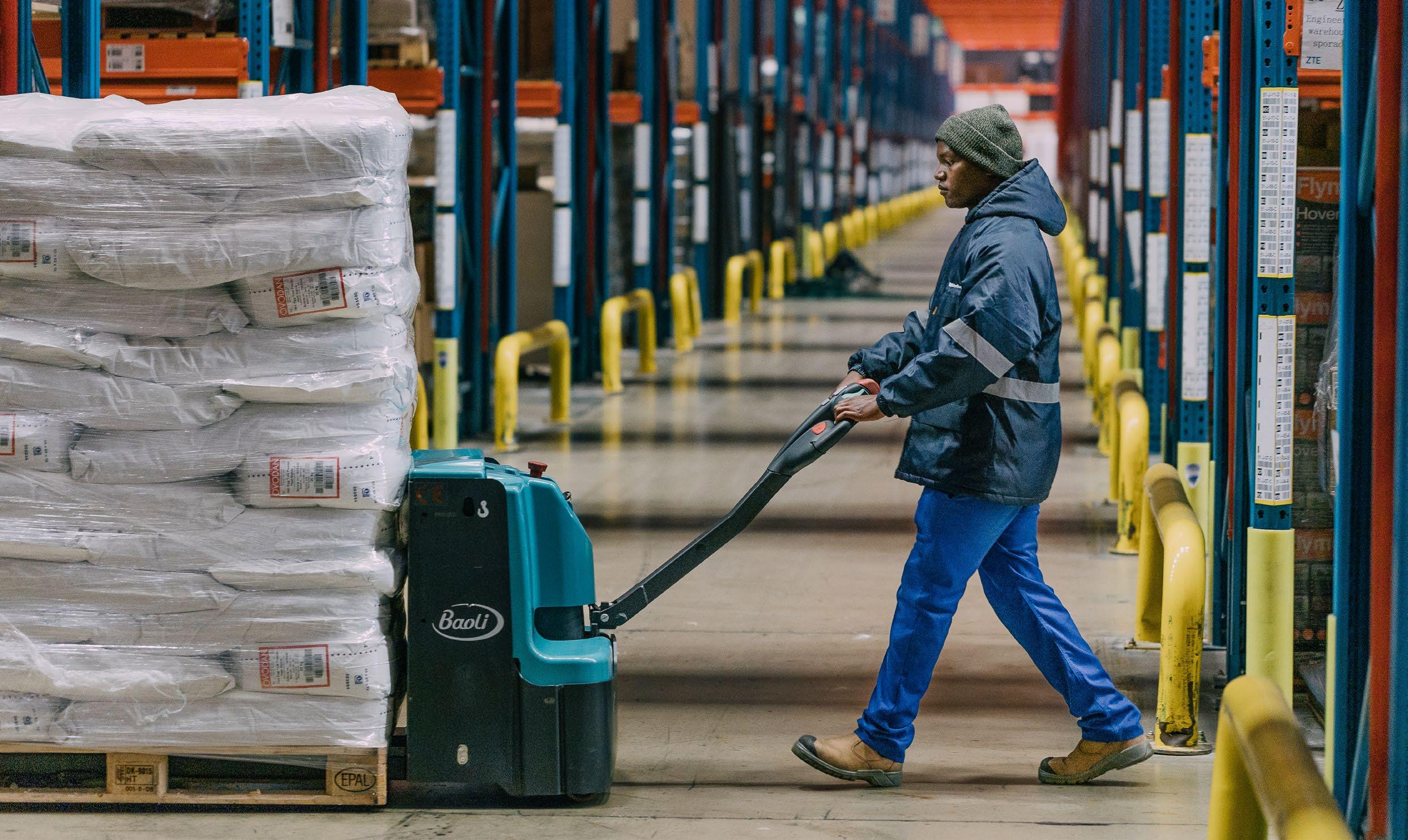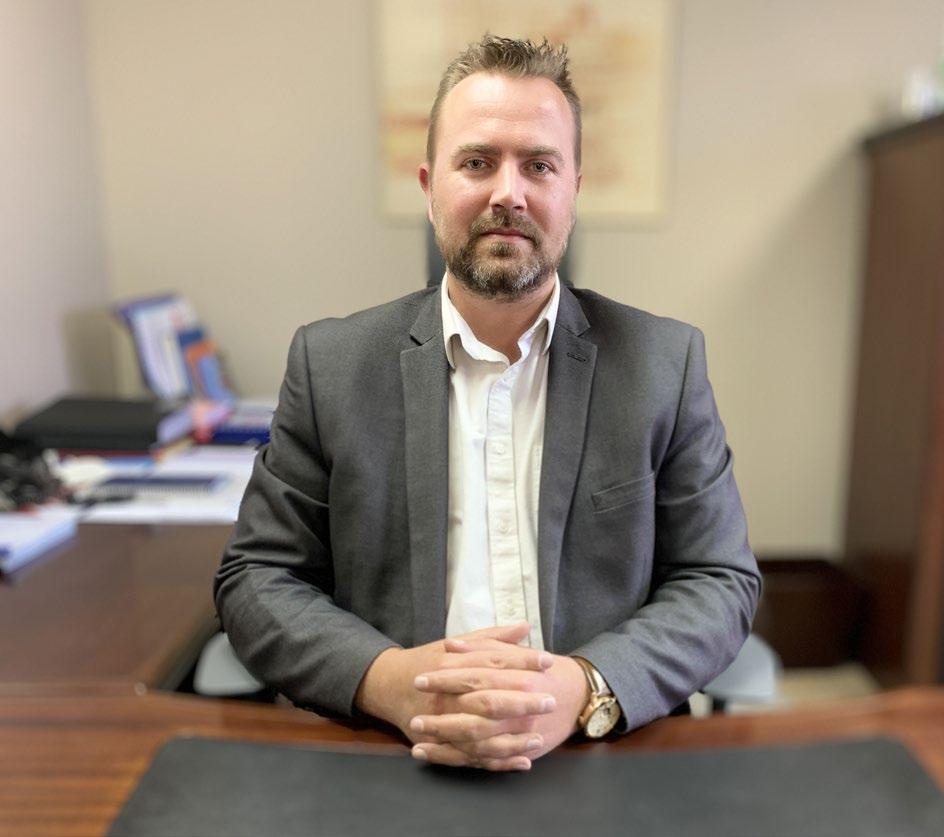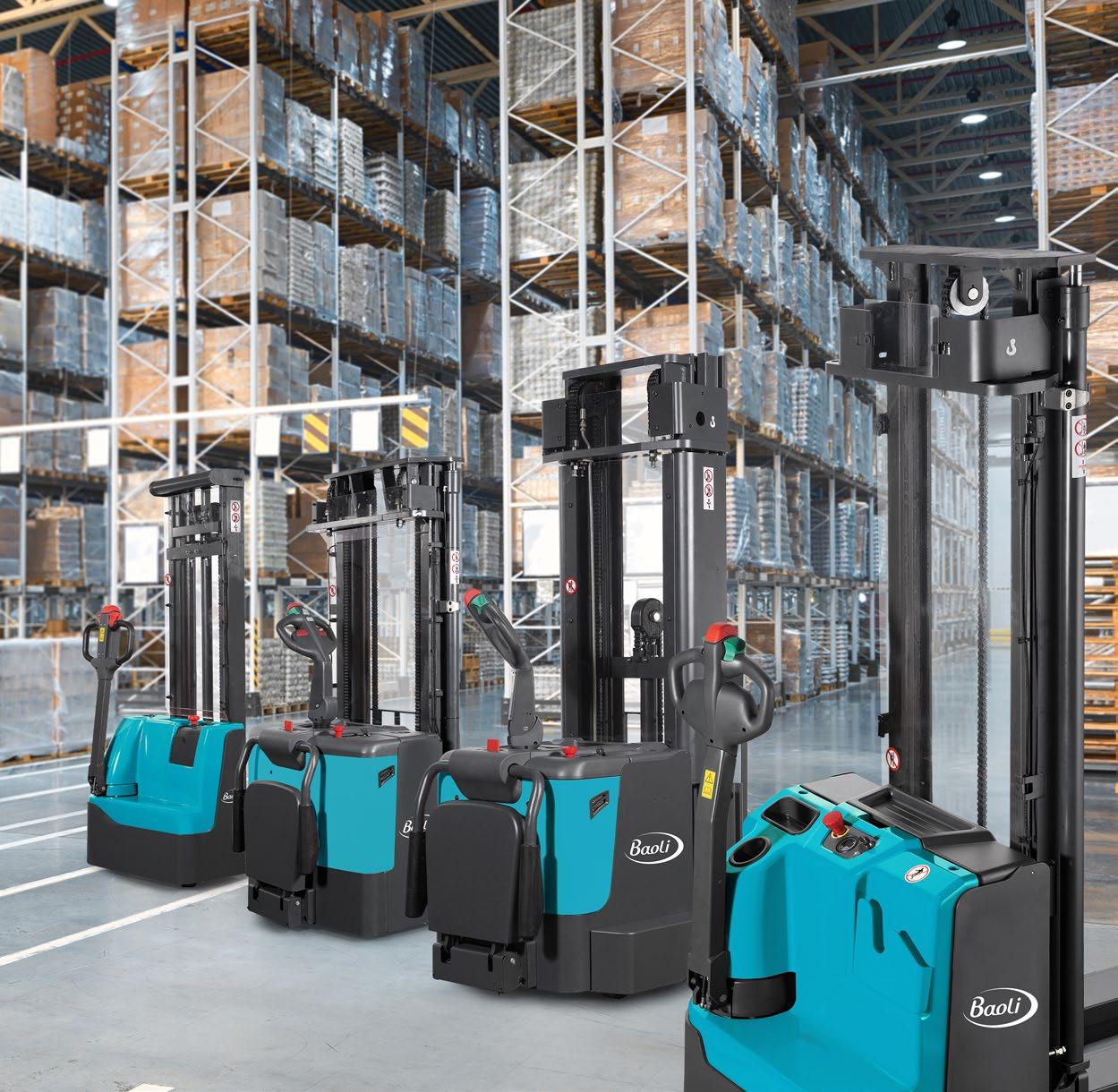
5 minute read
Building brands for Africa
ADVERTORIAl Building brands for Africa
Following the increasing demand for tough and reliable equipment in Africa, Smith Power Equipment has set its sights on expanding its footprint on the continent. Lifting Africa spoke to Eric Schultz, Director of Finance and Operations to find out more.
Advertisement
Reputable Original Equipment Manufacturers (OEMs) are well aware that a brand is only ever as good as its support. They also understand the critical importance of partnerships, especially in Africa. Smith Power Equipment has built itself a reputation as one of the most reputable distribution partners. With an extensive knowledge of the local equipment market, it is no surprise that many OEMs continue to turn to the company when seeking to establish themselves here. “OEMs come to us, and we help them build and establish their brands within the relevant markets. If one looks at our business and the type of products we import then it is clear to see that we are all about quality, reliability and affordability. These are the traits we look for in machines,” explains Schultz who describes Smith Power Equipment as the builder of German brands in Africa. “Quality and reliability are also what many German brands are renowned for and many of the OEMs in the country have opted to partner with Smith Power Equipment to be their distribution partner in South Africa.”
He says the company has opted for an aggressive expansion strategy. Locally it has opted to grow its footprint in Cape Town extensively so much so that this will become the company’s next headquarters in coming years. The other expansion drive is into Africa. “We have already started the process of appointing dealers across Africa as we set our sights on growing our footprint. We believe there is a real opportunity in the African market and we are ideally positioned to bring our range of equipment to these markets.” South Africa, he says, remains the largest capital equipment market on the continent and is still the gateway into Africa for many international companies looking to establish themselves on the continent. South Africa's trading relationship with countries in Europe such as Germany is also well-established. “In 2017, Germany was ranked as the second-largest trading partner for South Africa and they understand the importance of the country in growing their African markets.” He says the benefit of Smith Power Equipment is that it offers the best of both worlds. With a firm knowledge of local requirements and its strong connection to international OEMs, it can meet Africa’s equipment needs reliably and more importantly, costeffectively.


Meeting African needs
Affordability, according to Schultz, remains important in Africa. Just as important is the aftermarket service. “These two factors are key parameters when it comes to equipment buying decisions in the capital equipment space. The brands we represent can meet those requirements.” He says Africa’s potential as a growth market for business cannot be overemphasised. “If we look at the range of products that we have then we are ideally suited to service Africa. We have an extensive range of equipment in the agricultural sector, which is possibly one of Africa’s biggest growth areas.” Africa’s move to increasing manufacturing will also see Smith Power Equipment boost its material handling equipment in the continent. “We already have a substantial dealer network in southern Africa and extending this further makes strategic sense. Our brands are doing very well in Africa and continue to see growth.” One brand in particular that has been very well received has been the Baoli range of machines. According to Schultz, the company partnered with the brand in 2018 and it is still very much in its infancy. “We are still in the growing phase and our market share is still relatively small in South Africa, but the opportunity to grow and extend this brand in Africa is huge. Our goal is to be one of the serious players in the market.”

He says the machines are ideally suited to the African market thanks to their affordability and robustness. “They are quality machines that are easy to use and easy to maintain.”
Developing trends
Schultz says the rental business continues to go from strength to strength at present. With many companies still recovering from the global pandemic there has been an increased move toward renting equipment rather than purchasing. “This is another part of our business that we are expanding and both our short to medium-term fleets are being extended to meet the market demands. Many companies also operate with seasonality and so they don’t need a machine for 12 months but only for four or five months of the year.” He says being able to deliver reliability is still a market trend. “That includes offering a solid after-service. Having the ability to look after a machine once it has been purchased is important. With this in mind, we invest heavily in our technicians and stockholding to maintain our fleet and ensure that we can reduce client downtimes to a minimum. This the same approach we are taking in Africa and will ensure our dealers and distribution network can offer the same level of service all the time.” The move away from diesel machines is a fast-growing
Eric Schultz, Finance and Operations Director for Smith Power Equipment.

trend in South Africa, says Schultz. “There is a massive drive towards green and reducing carbon footprints. We have seen a definite spike in demand for electric machines.”
Schultz says the sector is not without challenges and the disruptions of the supply chain have been one of the biggest issues to deal with. “Lead times have increased exponentially as has the cost. Many regions, particularly in the East, are still dealing with Covid lockdowns which has an impact on manufacturing and so planning has become very important to meet deadlines.”
Smith Power Equipment,
+27 (0) 11 284 2000, mail@smithpower.co.za, www.smithpower.co.za











